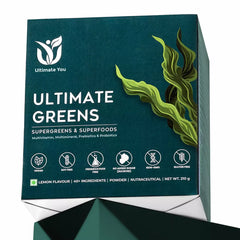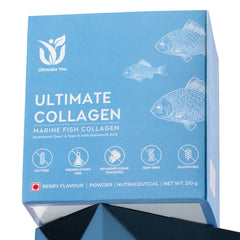Feeling constantly tired? Noticing your skin is drier than usual? These could be signs your body is lacking fat-soluble vitamins.
Vitamins A, D, E, and K are essential for key functions like vision, immunity, bone health, and blood circulation. Unlike water-soluble vitamins, these are stored in fat cells and absorbed with dietary fats. But if your diet lacks them, or if your body struggles with absorption, you might develop a deficiency over time.
Here are 7 science-backed signs that you may be running low on these vital nutrients—and what you can do about it.
1. Poor Night Vision or Dry Eyes (Vitamin A Deficiency)
If you struggle to see in dim light or experience frequent dry eyes, low vitamin A could be the culprit. This vitamin is essential for producing rhodopsin, a pigment in the retina that helps you see in low light.
Other Signs:
- Dry, rough skin
- Increased susceptibility to infections
- Bitot’s spots (foamy patches on the whites of the eyes)
How To Fix?
Eat more carrots, sweet potatoes, spinach, and liver—all rich in beta-carotene, which your body converts into vitamin A.
2. Getting Sick Frequently (Vitamin D Deficiency)
Do you catch colds easily and take longer to recover? Vitamin D is crucial for immune function, and deficiency can make you prone to frequent infections. It helps activate T-cells, your body's defense system against viruses and bacteria.
Other Signs:
- Fatigue and low energy
- Joint pain or muscle weakness
- Depression or mood swings (since vitamin D affects serotonin production)
How To Fix?
Get 15–30 minutes of sunlight daily, and eat fatty fish, egg yolks, and fortified dairy products. Supplements might be needed if levels are very low.
3. Weak Bones or Muscle Pain (Vitamin D & K Deficiency)
Vitamin D helps absorb calcium, and vitamin K directs calcium to the bones. Without enough of these, bones become brittle, increasing the risk of fractures.
Other Signs:
- Back or joint pain
- Frequent fractures
- Slow wound healing
How To Fix?
Eat more salmon, dairy, and leafy greens (like kale and spinach). Also, include fermented foods like natto, which is rich in vitamin K2.
Keep your bones strong with calcium, vitamin D, magnesium, and vitamin K! Want to know how these nutrients keep your bones healthy? Learn more in The Ultimate Nutrient Guide for Healthy Bones.
4. Dry Skin, Hair Loss, and Premature Ageing (Vitamin A & E Deficiency)
Vitamin A supports skin cell turnover, while vitamin E protects skin from oxidative stress. A deficiency can lead to dry, rough skin, dandruff, and even hair thinning.
Other Signs:
- Fine lines appearing early
- Slow wound healing
- Increased skin sensitivity to sunlight
How To Fix?
Eat nuts, seeds, avocados, and fish to get enough vitamin E. For vitamin A, load up on orange and green veggies.
Fat- and water-soluble vitamins play unique roles in the body. Understanding these differences helps optimize nutrient intake and prevent imbalances. Discover more in our guide: Water-Soluble vs. Fat-Soluble Vitamins: How Do They Differ?.
5. Easy Bruising & Excessive Bleeding (Vitamin K Deficiency)
If you bruise easily or notice prolonged bleeding from small cuts, you might not be getting enough vitamin K. This vitamin helps with blood clotting and also plays a role in bone health.
Other Signs:
- Bleeding gums
- Heavy menstrual bleeding
- Frequent nosebleeds
How To Fix?
Eat leafy greens (kale, spinach), broccoli, and fermented foods. Also, use olive oil and eggs in your diet.
6. Tingling or Numbness in Hands & Feet (Vitamin E Deficiency)
Vitamin E is a powerful antioxidant that protects nerves. Deficiency can cause nerve damage, leading to tingling, numbness, or muscle weakness.
Other Signs:
- Loss of coordination or balance
- Weak immune system
- Vision problems
How To Fix?
Eat more almonds, sunflower seeds, hazelnuts, and olive oil. If you have a condition affecting fat absorption, consult a doctor about supplementation.
7. Persistent Fatigue & Brain Fog (Vitamin D & E Deficiency)
If you constantly feel drained despite getting enough sleep, low vitamin D and E could be affecting your energy levels and brain function. These vitamins support mitochondrial function (your cells' energy factories) and protect brain cells from oxidative damage.
Other Signs:
- Difficulty concentrating
- Mood swings or irritability
- General body weakness
How To Fix?
Prioritize sunlight exposure, fatty fish, nuts, and seeds. Also, check your vitamin D levels if fatigue persists.
Final Thoughts
Fat-soluble vitamins play crucial roles in your body, from immune function and skin health to bone strength and nerve protection. If you're experiencing any of these symptoms, it's time to evaluate your diet and lifestyle.
What You Can Do?
- Eat a balanced diet with healthy fats, nuts, seeds, fish, dairy, and leafy greens.
- Get enough sunlight for vitamin D.
- Consider supplements if you have absorption issues or dietary restrictions.
Listen to your body—it often signals what it needs before major problems arise!
Disclaimer
The information provided is for educational purposes only and is not intended to be a substitute for medical treatment. If you're pregnant, nursing, taking medication, or have a medical condition, it's better to consult a healthcare professional. Ultimate You does not provide any guarantee regarding the accuracy, adequacy, completeness, legality, reliability, or usefulness of the information and disclaims any liability arising from it.










